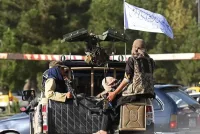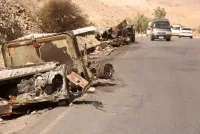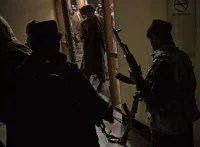
The U.S. couldn’t build Afghanistan a democracy. That rarely works
As the Taliban swept into Kabul after the collapse of the Afghan government, former military and civilian leaders chastised the Biden administration for pulling U.S. troops out too soon. The U.S. military, they argued, could have prevented the disaster and used its might to keep trying to build a democratic state.
To stabilize the country, these critics argued, the United States should have stayed longer, until the Afghan military could stand on its own, until the government was stronger, until the Taliban was defeated.
But the history of great power interventions into insurgencies suggests that efforts to stabilize Afghanistan through democratization would have been futile.… Seguir leyendo »




